Government of Uganda, private sector and EU discuss opportunities for horticultural exports
- 30/09/2021
- Posted by: Sandra Borma
- Category: Africa, News, Uganda
No Comments On 22 September, the EU Delegation in Uganda organised a trialogue between the Government of Uganda, the Ugandan private sector and the European Union to discuss “Challenges and opportunities for Ugandan horticultural exports to Europe”. Europeans hold Ugandan products in high regard, but some issues regarding standards and quality have led to increased controls at EU borders for products coming from Uganda. This represents a great loss for the Government and for the private sector. The meeting identified and discussed… +
On 22 September, the EU Delegation in Uganda organised a trialogue between the Government of Uganda, the Ugandan private sector and the European Union to discuss “Challenges and opportunities for Ugandan horticultural exports to Europe”. Europeans hold Ugandan products in high regard, but some issues regarding standards and quality have led to increased controls at EU borders for products coming from Uganda. This represents a great loss for the Government and for the private sector. The meeting identified and discussed… +News digest: Agri-food markets and production
- 20/09/2021
- Posted by: Gaetan Dermien
- Category: Africa, Apples, Avocados, Bananas, Berries, Caribbean, Cherries, Citrus fruits, Ginger, Mangoes, News, Onions, Pacific, Papayas, Pineapples, Tomatoes, Watermelons
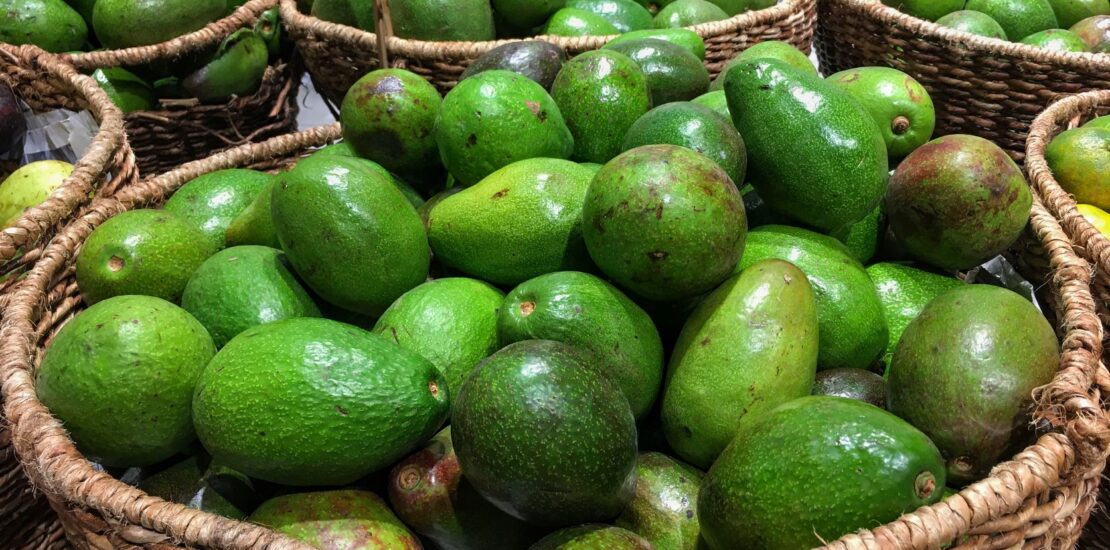 AFRICA Réunion Island vanilla gets EU Protected Geographical Indication Vanilla from Réunion Island has just been registered by the European Commission in the register of Protected Geographical Indications (PGI). Its reputation is based on its unique aromatic bouquet, the result of the plant’s perfect acclimatisation on the volcanic slopes of the east of the island and the know-how developed by the people of Reunion. Source: Commodafrica, 30 August 2021 Opportunities for Ethiopian avocados “Ethiopia has huge potential in avocados” says… +
AFRICA Réunion Island vanilla gets EU Protected Geographical Indication Vanilla from Réunion Island has just been registered by the European Commission in the register of Protected Geographical Indications (PGI). Its reputation is based on its unique aromatic bouquet, the result of the plant’s perfect acclimatisation on the volcanic slopes of the east of the island and the know-how developed by the people of Reunion. Source: Commodafrica, 30 August 2021 Opportunities for Ethiopian avocados “Ethiopia has huge potential in avocados” says… +Ethiopia: Unveiling of COLEACP Rapid SPS Assessment tool for the Ethiopian NPPO
- 17/09/2021
- Posted by: Sandra Borma
- Category: Africa, Ethiopia
 A meeting was held on 15 September 2021 with the Ethiopian National Plant Protection Organisation (NPPO), the national focal point and the COLEACP team to introduce COLEACP’s Rapid SPS Assessment (R-SAT) tool. The R-SAT tool was developed by COLEACP to support relevant authorities, in consultation with key stakeholders from the public and private sectors, to assess the status and functioning of SPS systems. Bringing together the public and private sectors will allow the development of a priority action plan based… +
A meeting was held on 15 September 2021 with the Ethiopian National Plant Protection Organisation (NPPO), the national focal point and the COLEACP team to introduce COLEACP’s Rapid SPS Assessment (R-SAT) tool. The R-SAT tool was developed by COLEACP to support relevant authorities, in consultation with key stakeholders from the public and private sectors, to assess the status and functioning of SPS systems. Bringing together the public and private sectors will allow the development of a priority action plan based… +Caribbean: Strategic review of the Caribbean Agricultural Health and Food Safety Agency
- 17/09/2021
- Posted by: Sandra Borma
- Category: Caribbean, News
 With the support of COLEACP, the Caribbean Agricultural Health and Food Safety Agency (CAHFSA) is undergoing significant changes to ensure that it fulfils its mandate and maximises the value it offers to member countries. CAHFSA’s role is particularly important in the current context of a global pandemic; the increasing importance of non-tariff barriers and agricultural nationalism; threats to food security; and the need to rapidly diversify and expand exports from the Caribbean region. For CAHFSA to contribute effectively to addressing… +
With the support of COLEACP, the Caribbean Agricultural Health and Food Safety Agency (CAHFSA) is undergoing significant changes to ensure that it fulfils its mandate and maximises the value it offers to member countries. CAHFSA’s role is particularly important in the current context of a global pandemic; the increasing importance of non-tariff barriers and agricultural nationalism; threats to food security; and the need to rapidly diversify and expand exports from the Caribbean region. For CAHFSA to contribute effectively to addressing… +Bringing together NPPOs throughout the ACP regions
- 15/09/2021
- Posted by: Sandra Borma
- Category: Africa, Caribbean, News, Pacific
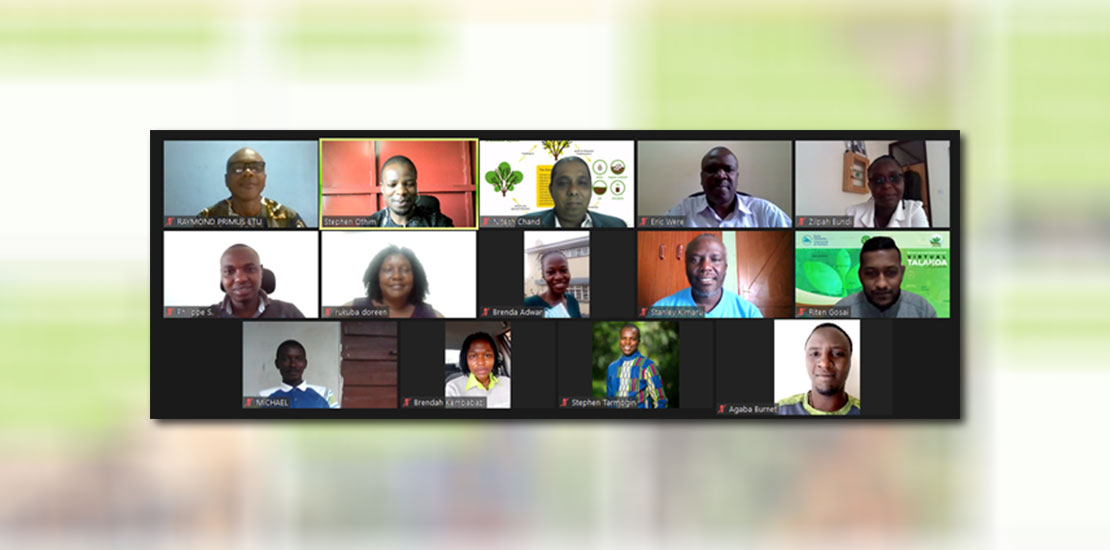 During the summer COLEACP has continued to offer group capacity building for ACP National Plant Protection Organisations (NPPOs), providing platforms for representatives of NPPOs to meet one another and share their experiences. Pest surveillance e-learning now in French Following the success of the English version, the first French training session on pest surveillance took place in June on COLEACP’s e-learning platform, followed by a further session in August. Together they reached 33 participants including representatives of the NPPOs of seven… +
During the summer COLEACP has continued to offer group capacity building for ACP National Plant Protection Organisations (NPPOs), providing platforms for representatives of NPPOs to meet one another and share their experiences. Pest surveillance e-learning now in French Following the success of the English version, the first French training session on pest surveillance took place in June on COLEACP’s e-learning platform, followed by a further session in August. Together they reached 33 participants including representatives of the NPPOs of seven… +EU approval not renewed for three key PPPs and other changes notified to WTO
- 07/09/2021
- Posted by: Gaetan Dermien
- Category: Africa, Caribbean, Pacific, Uncategorized
 Key points Alpha-cypermethrin is no longer approved within the European Union (EU) since 7 June 2021. EU approval was not renewed in 2020 and it also expired in 2021 for two other key plant protection products (PPPs): — mancozeb (since 5 January 2021); and — pencycuron (since 31 May 2021). The EU notified the World Trade Organization (WTO) of its intention not to renew three key PPPs: — indoxacarb (notification: 2 August 2021; open for comments until 1 October 2021);… +
Key points Alpha-cypermethrin is no longer approved within the European Union (EU) since 7 June 2021. EU approval was not renewed in 2020 and it also expired in 2021 for two other key plant protection products (PPPs): — mancozeb (since 5 January 2021); and — pencycuron (since 31 May 2021). The EU notified the World Trade Organization (WTO) of its intention not to renew three key PPPs: — indoxacarb (notification: 2 August 2021; open for comments until 1 October 2021);… +EU MRL changes for 83 PPPs in 2021
- 26/08/2021
- Posted by: Gaetan Dermien
- Category: Africa, Angola, Antigua and Barbuda, Australia, Bahamas, Barbados, Belgium, Belize, Benin, Botswana, Burkina Faso, Burundi, Cameroon, Cape Verde, Caribbean, Central African Republic, Chad, Comoros, Cook Islands, Côte d'Ivoire, Country, Democratic Republic Of The Congo, Djibouti, Dominica, Dominican Republic, Equatorial Guinea, Eritrea, Eswatini, Ethiopia, Faroe Islands, Federated States of Micronesia, Fiji, France, Gabon, Gambia, Germany, Ghana, Greece, Grenada, Guinea, Guinea-Bissau, Guyana, Haiti, Hungary, Ireland, Italy, Jamaica, Kenya, Kiribati, Liberia, Luxembourg, Madagascar, Malawi, Mali, Marshall Islands, Mauritania, Mauritius, Mozambique, Namibia, Nauru, Netherlands, News, Niger, Nigeria, Niue, Pacific, Papua New Guinea, Poland, Portugal, Republic of the Congo, Rwanda, Saint Kitts and Nevis, Saint Lucia, Saint Vincent and the Grenadines, Samoa, Sao Tome and Principe, Senegal, Seychelles, Sierra Leone, Solomon Islands, Somalia, Spain, Suriname, Tanzania, Timor-Leste, Togo, Tonga, Trinidad and Tobago, Tuvalu, Uganda, Vanuatu, Zambia, Zimbabwe
 Key points Since the start of 2021, European Union (EU) maximum residue level (MRL) changes concerned 83 plant protection products (PPPs; 59 in 2020). These changes refer to modifications compared to the previous regulation, and can be either an increase or lowering of the MRLs for certain foods.COLEACP identified 27 key substances used in African, Caribbean and Pacific (ACP) horticulture that are affected by these changes. For 10 of the substances (ametoctradin, bupirimate, chlorothalonil, dimethoate, ethoprophos, myclobutanil, propiconazole, pyraclostrobin spinetoram,… +
Key points Since the start of 2021, European Union (EU) maximum residue level (MRL) changes concerned 83 plant protection products (PPPs; 59 in 2020). These changes refer to modifications compared to the previous regulation, and can be either an increase or lowering of the MRLs for certain foods.COLEACP identified 27 key substances used in African, Caribbean and Pacific (ACP) horticulture that are affected by these changes. For 10 of the substances (ametoctradin, bupirimate, chlorothalonil, dimethoate, ethoprophos, myclobutanil, propiconazole, pyraclostrobin spinetoram,… +Public-private cooperation in risk management
- 06/08/2021
- Posted by: Gaetan Dermien
- Category: Africa, News
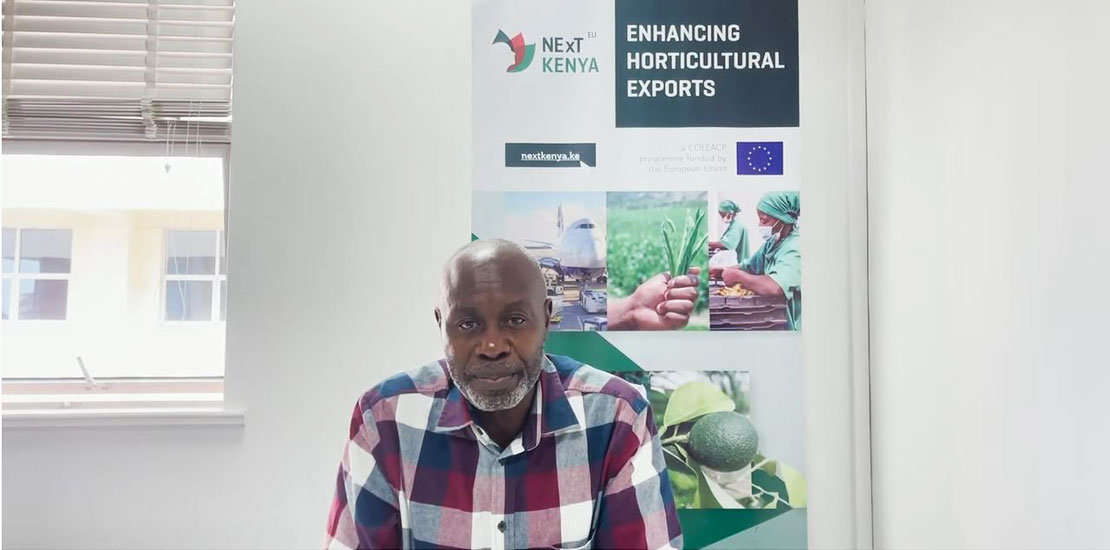 In July Dr Chagema Kedera, COLEACP Coordinator for the New Export Trade (NExT) Programme in Kenya, presented a video on “Public-private cooperation in risk management” at a Workshop on Risk Assessment, Risk Management, and Risk Communication hosted by the World Trade Organization Committee on Sanitary and Phytosanitary Measures. He discusses the four key aspects of risk management – governance, operational processes, capacity, and communication – through the example of Kenya’s experience. For successful risk management, close interaction between public and… +
In July Dr Chagema Kedera, COLEACP Coordinator for the New Export Trade (NExT) Programme in Kenya, presented a video on “Public-private cooperation in risk management” at a Workshop on Risk Assessment, Risk Management, and Risk Communication hosted by the World Trade Organization Committee on Sanitary and Phytosanitary Measures. He discusses the four key aspects of risk management – governance, operational processes, capacity, and communication – through the example of Kenya’s experience. For successful risk management, close interaction between public and… +Virtual information workshop on the new EU SPS regulation
- 07/07/2021
- Posted by: Sandra Borma
- Category: Burundi, News
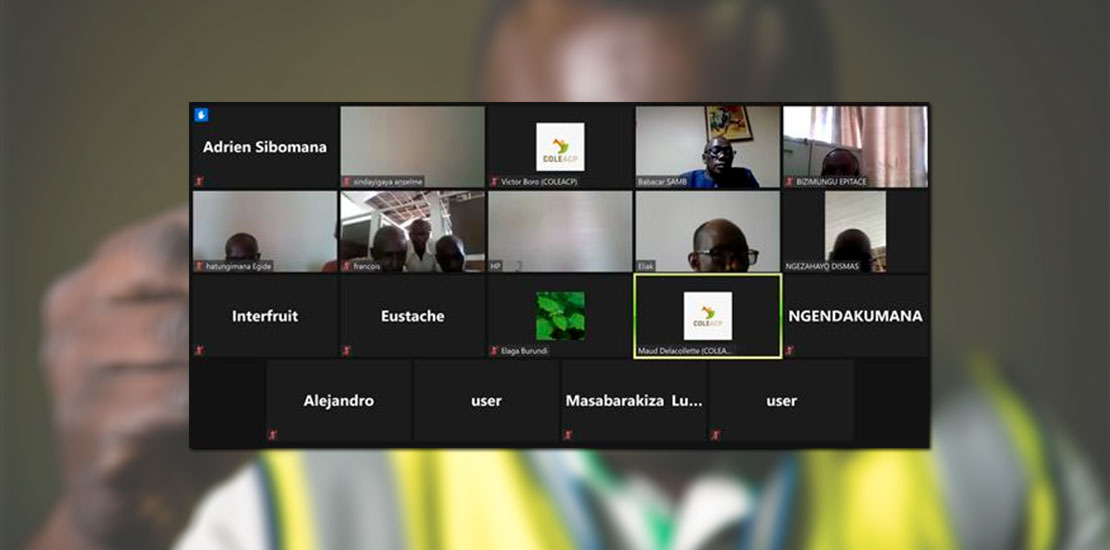 COLEACP organised, in collaboration with the Ministry of Environment, Agriculture and Livestock of Burundi (MINEAGRIE) and the Federal Chamber of Commerce and Industry of Burundi (CFCIB), a virtual information workshop on the new EU SPS regulation on 25 June. The objective of the workshop was to inform and sensitise public and private stakeholders in the Burundian horticultural sector on the SPS regulatory requirements for exports of horticultural products to the EU, and to set up a public-private working group that… +
COLEACP organised, in collaboration with the Ministry of Environment, Agriculture and Livestock of Burundi (MINEAGRIE) and the Federal Chamber of Commerce and Industry of Burundi (CFCIB), a virtual information workshop on the new EU SPS regulation on 25 June. The objective of the workshop was to inform and sensitise public and private stakeholders in the Burundian horticultural sector on the SPS regulatory requirements for exports of horticultural products to the EU, and to set up a public-private working group that… +Senegal: COLEACP training for ANCAR trainers in the Niayes zone
- 06/07/2021
- Posted by: Sandra Borma
- Category: News, Senegal
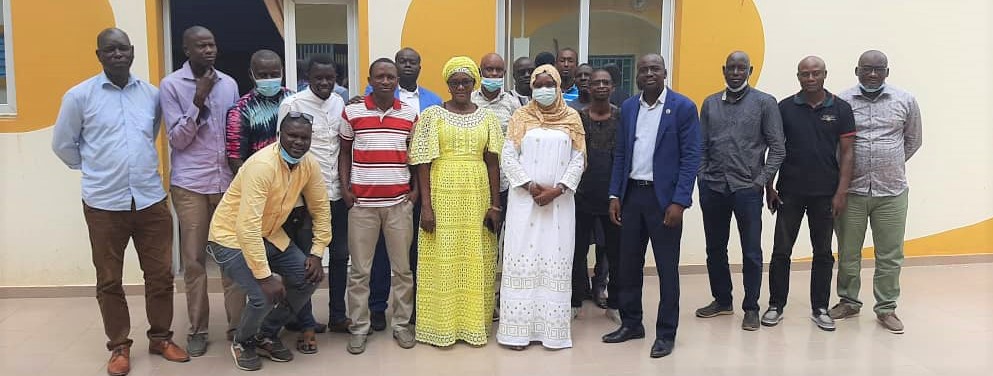 In Thiès, in the Niayes area of Senegal, COLEACP and the Agence Nationale de Conseil Agricole et Rural (ANCAR) are organising a training course on crop protection and the safe use of pesticides for ANCAR supervisors. This training is based on the “Animations Pédagogiques” method developed by COLEACP. This method has been designed around specific subjects in order to help the target audience understand, in a clear and pictorial way, the good practices to be respected throughout the production process… +
In Thiès, in the Niayes area of Senegal, COLEACP and the Agence Nationale de Conseil Agricole et Rural (ANCAR) are organising a training course on crop protection and the safe use of pesticides for ANCAR supervisors. This training is based on the “Animations Pédagogiques” method developed by COLEACP. This method has been designed around specific subjects in order to help the target audience understand, in a clear and pictorial way, the good practices to be respected throughout the production process… +
